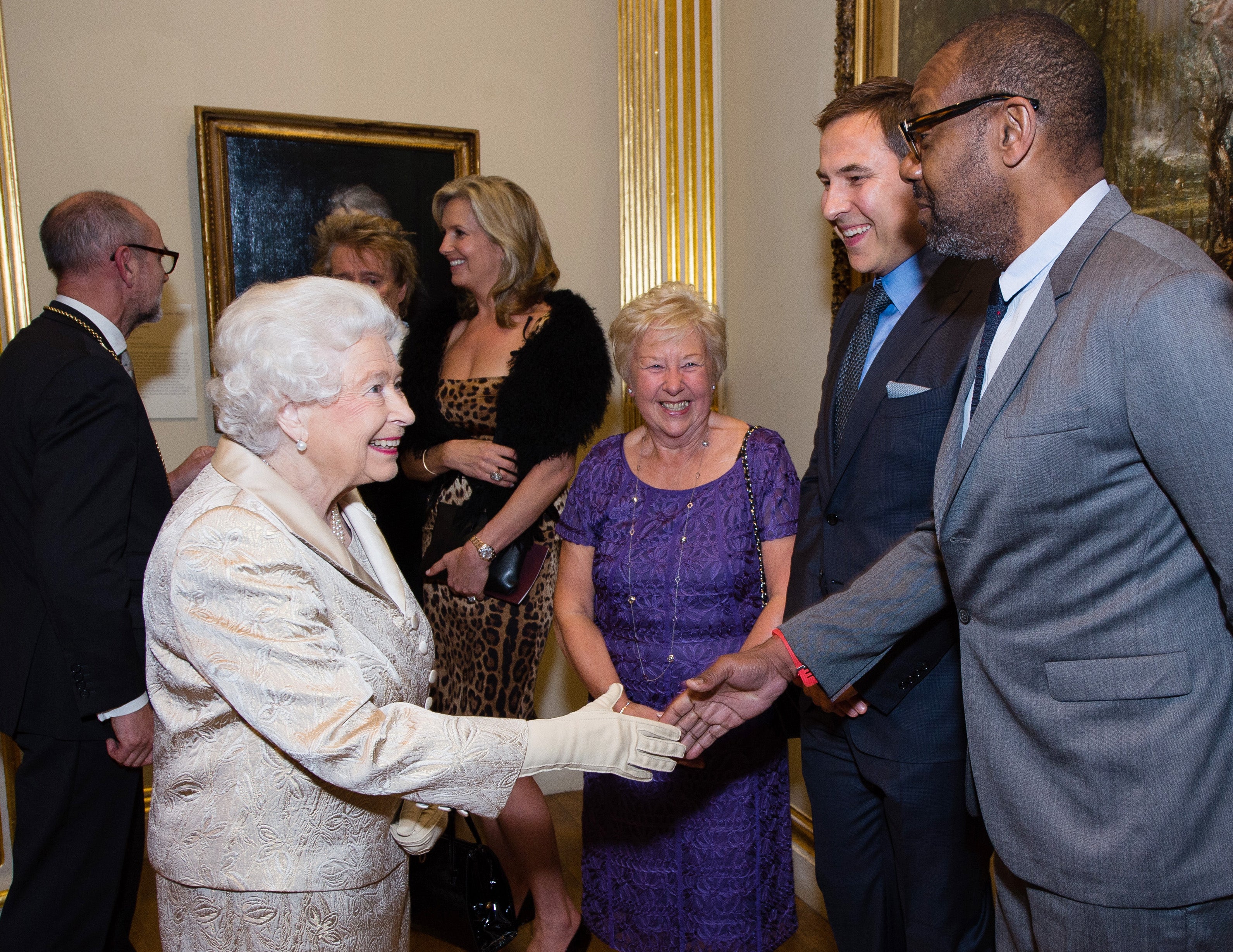The Queen’s death has unleashed a torrent of racist abuse
The online vitriol that I’ve witnessed and experienced over these past few days has been unlike anything I’ve ever seen before

Your support helps us to tell the story
From reproductive rights to climate change to Big Tech, The Independent is on the ground when the story is developing. Whether it's investigating the financials of Elon Musk's pro-Trump PAC or producing our latest documentary, 'The A Word', which shines a light on the American women fighting for reproductive rights, we know how important it is to parse out the facts from the messaging.
At such a critical moment in US history, we need reporters on the ground. Your donation allows us to keep sending journalists to speak to both sides of the story.
The Independent is trusted by Americans across the entire political spectrum. And unlike many other quality news outlets, we choose not to lock Americans out of our reporting and analysis with paywalls. We believe quality journalism should be available to everyone, paid for by those who can afford it.
Your support makes all the difference.News of the Queen’s passing has been met with mixed emotions in some parts of the country, particularly among Black communities, and within countries once colonised by Britain. These feelings range from indifference to celebration.
If you’re surprised by that, you shouldn’t be: the late ruler had many subjects – it stands to reason that views on her legacy will vary in light of the atrocities of the British empire and colonial crimes committed in the royal family’s name. I sympathise with the new King for his loss of a parent; I have experienced it myself. But if some naturally refuse to mourn, particularly as perfect strangers to Elizabeth the woman, then I believe that is their fundamental right.
Only, it’s not quite that simple. Between the wall-to-wall media coverage, the closure of essential food banks, cancellation of people’s hospital appointments, postponement of funerals scheduled for Monday and photographs of the Queen splashed across billboards, we are being constantly reminded that the nation is in mourning. Unfortunately, for Black and Asian people, during times of national crisis, the racists come out in full force too. History will tell you this.
The online vitriol and racist abuse that I’ve witnessed and experienced over these past few days has been unlike anything I’ve ever seen before. Several accounts have complained about me to The Independent for reporting on the many mixed reactions to the Queen’s death. I’ve been told to “go home” and received threats to my safety.
And I’m not alone: numerous other Black and Asian journalists – whose job is to highlight truth and place legacies into full context – have had similar experiences. Some have spoken openly about the sheer scale of the abuse they’ve received or witnessed since the Queen’s passing. This, to my mind, speaks volumes about the country - and world, really - that we live in.
Ash Sarkar, contributing editor at Novara Media, said: “Since the Queen died, racist abuse on here has been literally incessant (mostly of the ‘go back’ variety, but also explicit slurs). And it’s not just me. Despite all the scolding of the left for not being mournful enough, few journalists seem at all troubled by this.”
Other people from all walks of life including journalists and public figures – from Natalie Morris, a columnist at Metro, to lawyer, political and women’s rights activist Dr Shola Mos-Shogbamimu – have attested to the onslaught.
Some people’s careers have been at risk after expressing dissenting views about the monarchy, in a world where Black and Asian people are more likely to be unemployed or forced out of jobs due to racism.
Former England footballer Trevor Sinclair was racially abused by online users and suspended from talkSport, where he works, following complaints after tweeting a question about the Queen’s death in the context of racism in Britain.
Upon learning of the Queen’s declining health on Thursday, Uju Anya, professor at Carnegie Mellon University in the US, tweeted: “I heard the chief monarch of a thieving raping genocidal empire is finally dying. May her pain be excruciating.
“If anyone expects me to express anything but disdain for the monarch who supervised a government that sponsored the genocide that massacred and displaced half my family and the consequences of which those alive today are still trying to overcome, you can keep wishing upon a star”. People called for her to be sacked.
The academic faced racist and misogynistic backlash, such as being called the n-word and being deemed genetically inferior, plus complaints to her employer – with even billionaire businessman Jeff Bezos, the owner of Amazon, calling for a pile-on against her.
Australian politician Mehreen Faruqi was told to “pack your bags and p*** off back to Pakistan” by right-wing Australian senator Pauline Hanson, after tweeting that she “cannot mourn the leader of a racist empire”.
Writers Tirhakah Love, Harvard Professor Maya Jasanoff and Jemele Hill – all people of colour – were attacked online and smeared by sections of the press because of what they said about the monarch’s demise.
It seems to me that Black people who have refused to bend over backwards and squeeze into this twisted, uniform approach to the death of the Queen have been disproportionately targeted and subject to scrutiny compared to their white counterparts.
Death awaits every person and, with that, their legacy will come under scrutiny. A person’s legacy means different things to different people. But honest assessment can help to foster growth and reconciliation for those left behind.
To keep up to speed with all the latest opinions and comment, sign up to our free weekly Voices Dispatches newsletter by clicking here
Elizabeth II’s passing marks the end of an era – but it is impossible to separate the Queen’s legacy from that of the institution of which she was a part.
For example, despite centuries of pleading, Britain has never paid reparations for transatlantic slavery which saw at least 12 million African people – some of whom were my ancestors – abducted from the continent, trafficked and enslaved.
Instead, the government and royal family compensated former slave owners for “lost property” — equivalent to £300bn today, which British taxpayers finished paying off in 2015.

And the Queen herself – as personable and smiley as she seemed – was no passive bystander to contemporary injustices. Her reign was incontrovertibly fraught with the suffering of Black and brown people, from the structural inequalities we face and the Mau Mau rebellion to Britain’s involvement in the Biafran war and its refusal to pay reparations for transatlantic slavery.
Many of us – particularly Black and brown people who are descended from colonial subjects – have the capacity to bear layers of complex truths in a way that our privileged counterparts cannot.
For example, it is possible to empathise with the Windsors over the personal loss of their matriarch – on a human level – without crying in the streets over the role holder or the institution. Yet we, the “other”, are being ordered to “show respect” – as if speaking our truth is dishonourable. To my mind, there is, in fact, no greater honour than speaking truth to power.
We shouldn’t have to deal with racist abuse for being honest. The fact that we are speaks volumes about this country – and society as a whole, given that the same thing is happening overseas. It seems to me that the establishment that has worked hard to ignore these realities is now being confronted with the truth, as an unprecedented groundswell of global truth-telling gathers pace – and nothing can be done to quieten those voices.
A new day is dawning.
